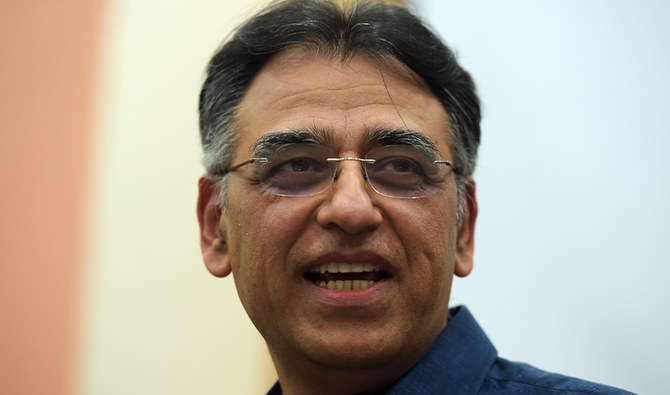ISLAMABAD: Pakistani companies signed contracts worth over $13 million related to various investment projects at the first edition of the Pakistan-Bahrain Investment Summit last week, the chief organizer of the event said on Monday.
The day-long event titled ‘Pakistan-Bahrain Investment Opportunities Summit and Smart Expo,’ organized by the Pakistan Association of Exhibition Industry (PAEI) with the Pakistani embassy in Bahrain, was held in Manama on May 17.
Over 125 Pakistani delegates showcased investment-ready projects across various sectors, attracting strong interest from the overseas Pakistani community and business leaders from Bahrain.
“The event was truly remarkable, featuring 25 Pakistani companies and more than 125 delegates where in just one day, contracts worth $13 million were signed across various investment projects in different sectors,” Mohammad Khurshid Barlas, PAEI founder, told Arab News over the phone from Bahrain.
“This figure is expected to increase further as many leads generated during the event are currently in follow-up stages and likely to mature soon,” he added.
Barlas said the participating Pakistani companies and delegates represented various sectors such as information technology, stock exchange, tourism, human resource services and real estate.
“Throughout the day the event was attended by more than 20,000 delegates from the Pakistani community and business leaders and representatives from Bahrain,” Barlas disclosed.
During the summit, he said discussions focused on a wide range of topics including the stock exchange, capital markets, overseas employment, real estate and tourism.
“The event is expected to significantly boost trade with Bahrain and attract further investment into Pakistan,” Barlas said.
Pakistan’s Ambassador to Bahrain Saqib Rauf said the event marks the beginning of “a promising series of engagements we plan to organize in Bahrain.”
“We are in continuous dialogue with the business communities of both countries and envision future events to focus on specific sectors of mutual interest,” he said.
“Our goal is to foster synergies between businesses and deepen trade and investment ties, paving the way for a stronger and more dynamic partnership between our nations.”
Zahid Latif Khan, chairman of ZLK Islamic Financial Services, a premier brokerage and financial services provider at the Pakistan Stock Exchange, said the event provided an excellent opportunity to engage with businesses from across the Middle East.
“People in the region are viewing Pakistan from a very positive perspective as we witnessed a renewed sense of hope and enthusiasm for doing business and trade with Pakistan,” Khan told Arab News.
Latif said he also highlighted the vast potential of the Pakistan Stock Exchange, which drew strong interest from business leaders in Bahrain.
“As the founder of the first Islamic brokerage house in Pakistan, I met with representatives from Bahrain’s Central Bank who were also present at the conference and their response was very encouraging, and I look forward to exploring further opportunities,” Latif added.
According to Pakistan’s foreign office, Pakistan’s trade with Bahrain ranges between $500 million and $1 billion. Major exports include meat, vegetables, rice, tobacco and textiles.
Imports from Bahrain include petroleum and its products, ferrous waste, scrap and aluminum.
The investment summit takes place amid Islamabad’s efforts to increase foreign trade and investment with its allies, especially the Gulf estates, as it hopes to recover from an economic crisis.
Pakistan formed the Special Investment Facilitation Council (SIFC) in June 2023 to attract international investment in key economic sectors such as mines, minerals, agriculture, livestock and tourism.
















